Can councils end London's loneliness epidemic?
- Published
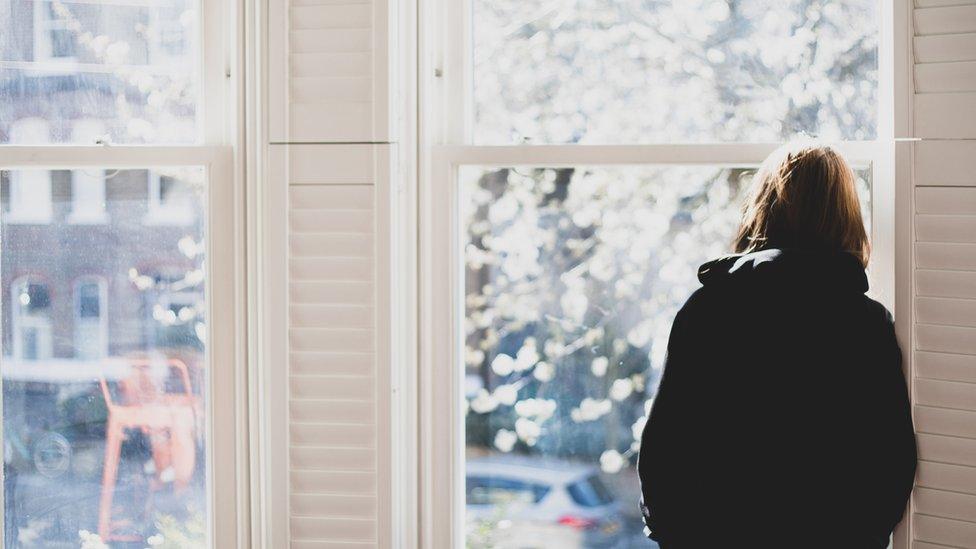
London is one of the loneliest places in England
"Nowhere feels as lonely and lost as in the metropolitan crowd," concluded German sociologist Georg Simmel after a lifetime of research.
Following two years of lockdowns and social distancing, never has the bite of loneliness felt more acute in London. Are councils in any position to help?
"It was like being suffocated. It felt like it was a curtain closing around me 360 degrees."
Loneliness hit Claire Jenkins, 44, hard during the pandemic.
The high-powered and highly sociable business owner had spent 20 years in London building a "very, very, active social life".
"I'm naturally an extrovert, so I get my energy and excitement from other people," she said.
"I would see people at work, or the gym, at talks or gigs and parties.
"I was living on my own but it was never on my own. I paid a lot of money to be in a house I was never in."
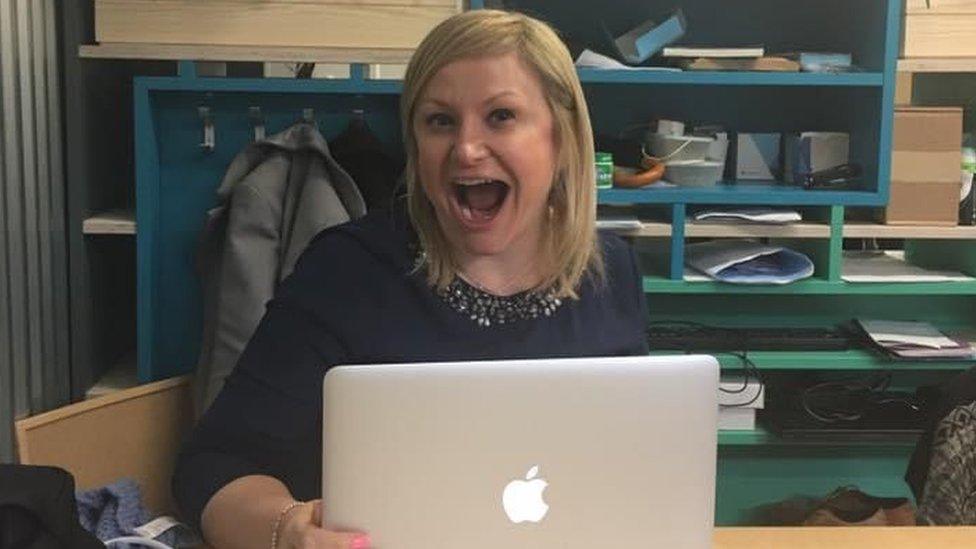
Claire Jenkins launched her new business in 2020 just months before the first national lockdown
The first national lockdown, announced by the government in March 2020 brought socialising to a sudden halt.
People were only permitted to leave home to exercise once a day or to shop for essential items and fulfil any medical or care needs. Travel to and from work was only allowed when it was absolutely necessary.
Social distancing, brought in to slow the spread of coronavirus, also starved Ms Jenkins of social interactions.
"It was horrible," she said.
Her work, as head of a HR firm for tech start-ups, dried up to an hour a day. She was left feeling "pointless".

"You just can't get out of bed because there's nothing to get out of bed for," she said.
"All the thoughts in your head feel tainted and black. Any past traumas or difficulties you haven't thought about quickly re-surface."
For Ms Jenkins, this meant feelings she had been "distracting" herself from over the loss of her mother in a car accident 15 years ago, "came to the front".
"You think you're the only one suffering like this. Because you're not seeing people you forget you have even friends," she said.
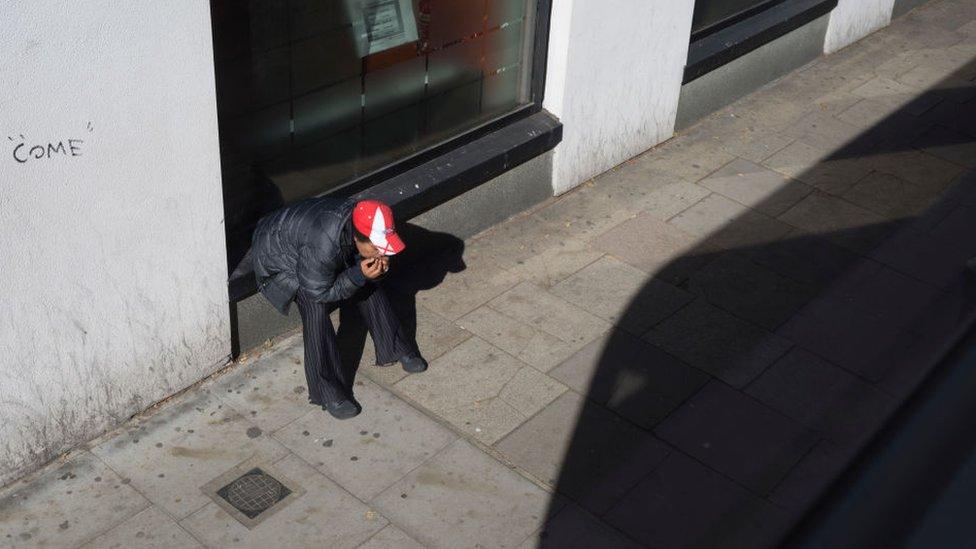
Nearly one in three Londoners said they felt lonely some or all of the time during the pandemic
A nationwide study, external by the Office of National Statistics (ONS) during the pandemic found London is the loneliest place in England.
Nearly one in three Londoners said they felt lonely some or all of the time during the pandemic - 20% more than the England-wide average.
Cities are places where people come together, hubs of culture and trade. It should follow that cramming nine million people into one city would create an antidote to loneliness.
But even before the pandemic hit, London had a loneliness problem. Figures collected in 2019 by the Campaign to End Loneliness found one in 12 Londoners were severely lonely., external
"In London it's easy to get around and there are so many options but equally you can feel a bit lost," according to Robin Hewings, its' programme director.

"Councils are the single most important organisation in any particular area for tackling loneliness," according to Mr Hewings.
"They can link up different services", such as housing, safe streets and social hubs that are "vital parts of what needs to exist in a local area to combat loneliness", Mr Hewings said.
"They are responsible for having libraries and informal spaces for people to meet like parks and public squares.
"Making sure places are safe for people to get to, that pavements are even, and benches are safe.
"This is how we meet up, maintain relationships and even just bump into people from the area."
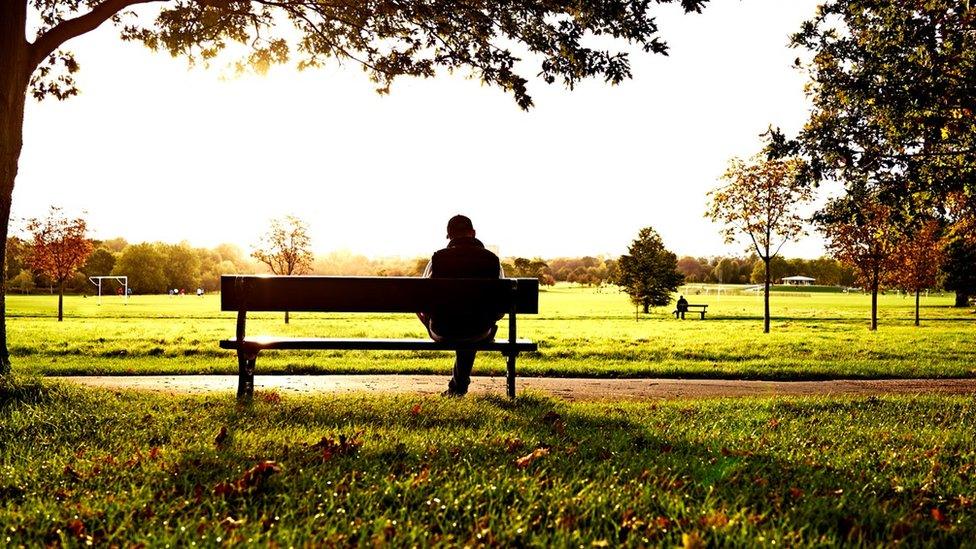
Informal places to meet are essential to combat loneliness, say campaign groups
The Campaign to End Loneliness also found Londoners were at more risk of slipping into isolation.
The study, supported by the Greater London Authority (GLA), found severe loneliness in London was not random - it's weighted heavily towards the poor and marginalised.
And there are more poor and marginalised people in London than on average, the report found.
This should not come as a surprise. As the study found, "severe loneliness comes when you face tough times without enough supportive people around you."
'Atrophy' of loneliness
"If you spend a week by yourself in a flat you will be shocked by the toll it takes, on your sense of self, your sense of worth, your ability to speak to others," according to Richard Bell, the head of the Cares Family, an organisation that connects neighbours to combat isolation.
"You begin to slow down physically and mentally," he said.
"It's a muscle that atrophies and you have to build up gradually over time," he added.
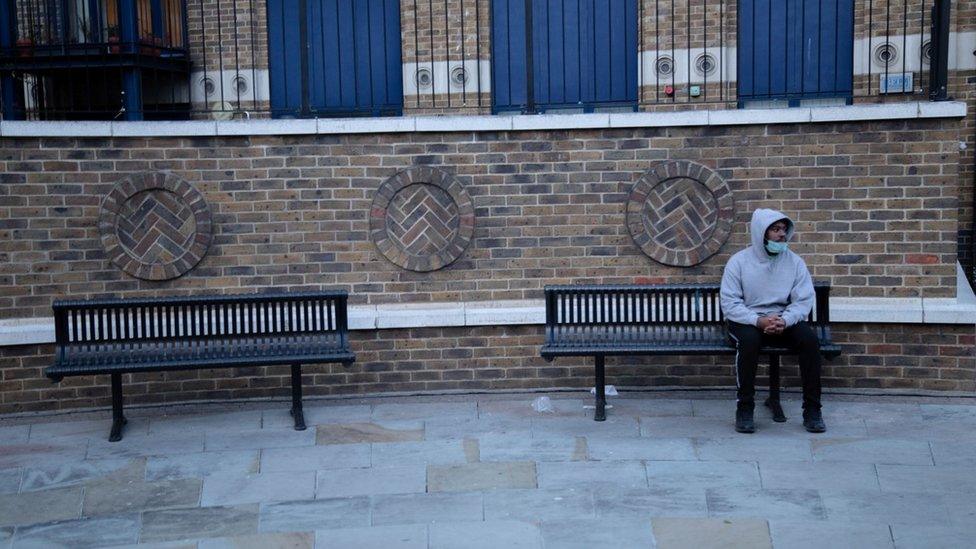
Isolated people report higher rates of depression and anxiety
According to the London School of Economics (LSE), the healthcare cost of treating loneliness is £6,000 per person over 10 years.
Isolated people report higher rates of depression and anxiety. Loneliness can also increase stress, in turn raising the risk of strokes, heart attacks and ultimately premature death.
Loneliness can lead to other destructive "comfort" behaviour such as drinking too much alcohol or overeating, according to Sarah Garfinkel, professor of cognitive neuroscience at University College London.
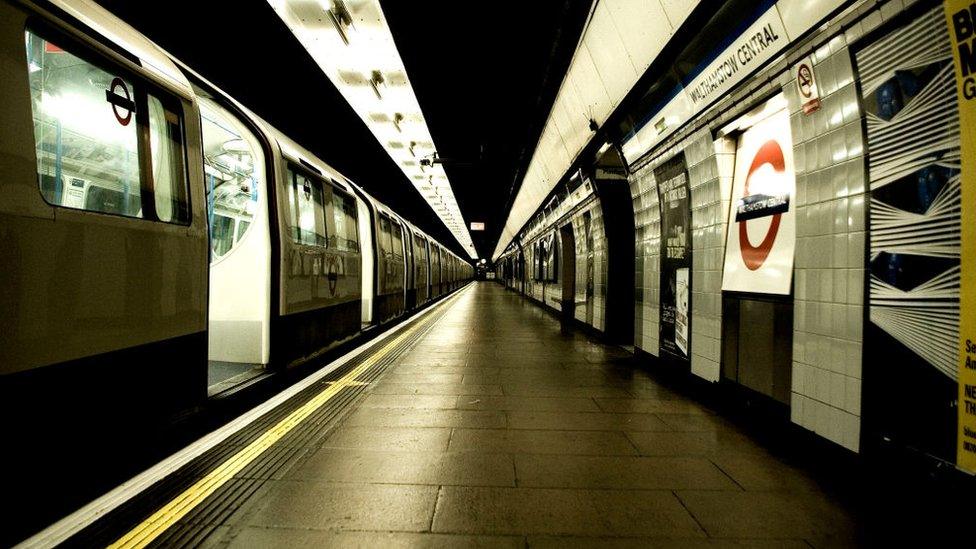
London came to a near standstill during the lockdowns
London councils are now at a crossroads. Their budgets have been hit harder than anywhere else in the country.
A BBC study found London will see the largest per-person budget cuts due to the impact of the coronavirus pandemic.
Both Croydon and Bexley councils were granted emergency bailouts by central government to cover "unmanageable pressures".
"Too many councils are driven by budget line by budget line approach, rather than looking at what the cost is tomorrow," Mr Bell said.
The LSE study into loneliness found every £1 spent on preventing loneliness would save £3 from the public purse.
"The pandemic shook up our senses of what was normal and what we could expect from one another and made us more empathic to one another," Mr Bell said.
"We had time to stop and engage in and build our community. I think it's crucial that we don't let that moment pass us by."
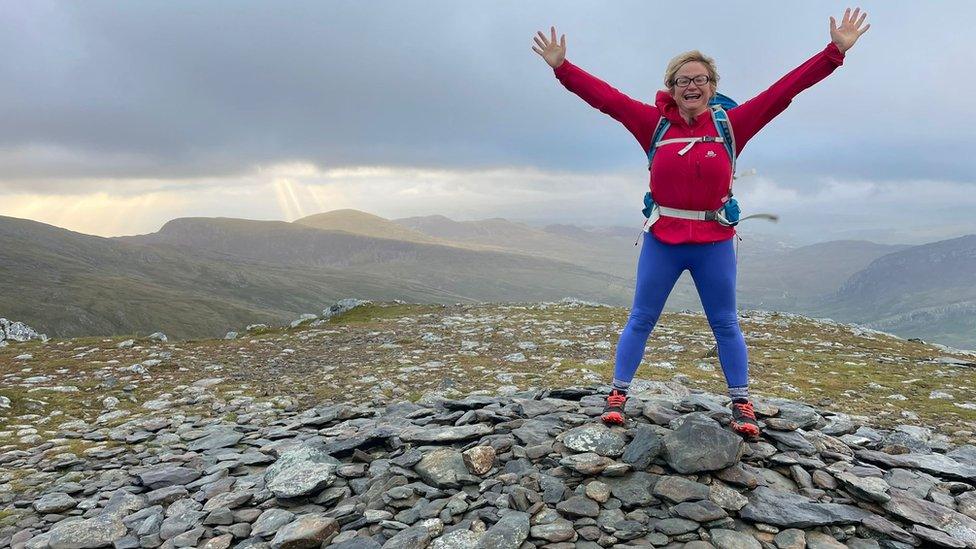
Claire Jenkins credits joining a series of "adventuring groups" with helping her escape loneliness
As soon as restrictions ended Ms Jenkins moved back to Gloucestershire, near where she grew up.
"Most people don't have roots in London and it's your roots that give you stability," Ms Jenkins said.
"I feel like I had a lucky escape from dark times," she said.
"I was never bored in London but I often felt lonely and that loneliness could be excruciating."

Follow BBC London on Facebook, external, Twitter , externaland Instagram, external. Send your story ideas to hellobbclondon@bbc.co.uk, external
- Published7 April 2021

- Published20 April 2019
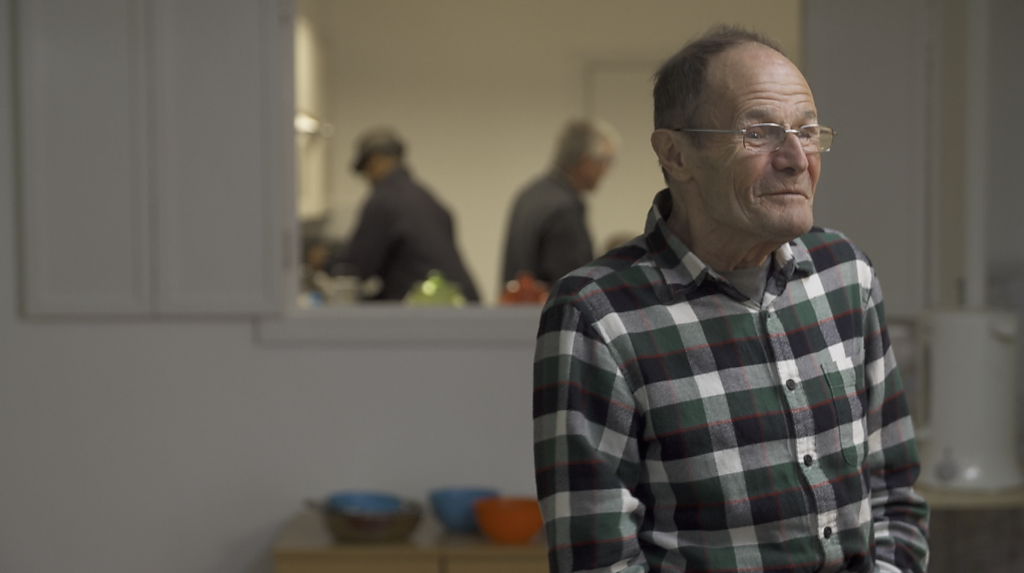
- Published3 May 2021

